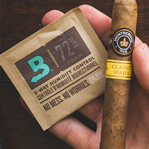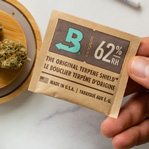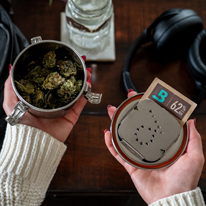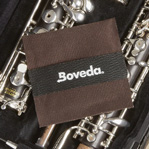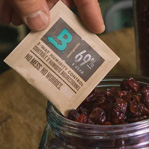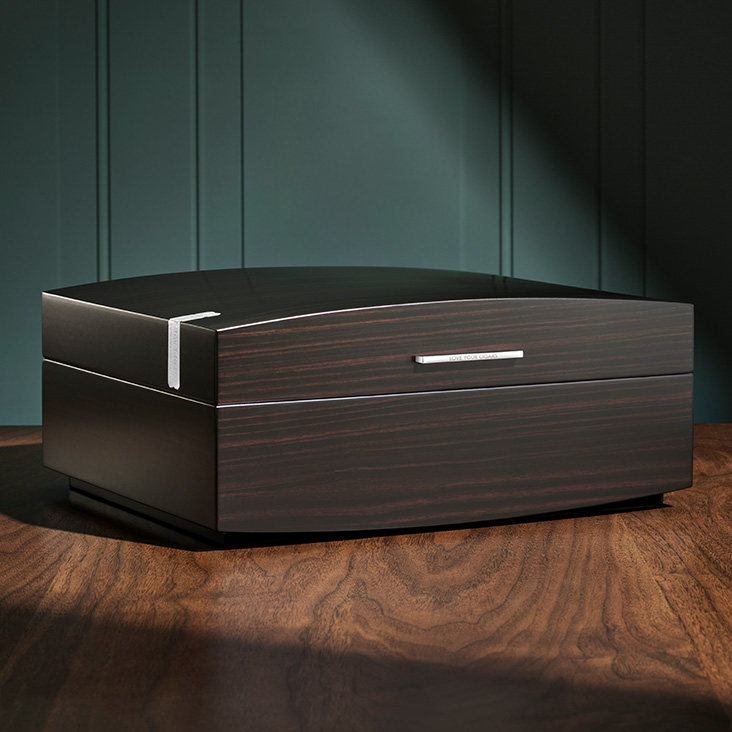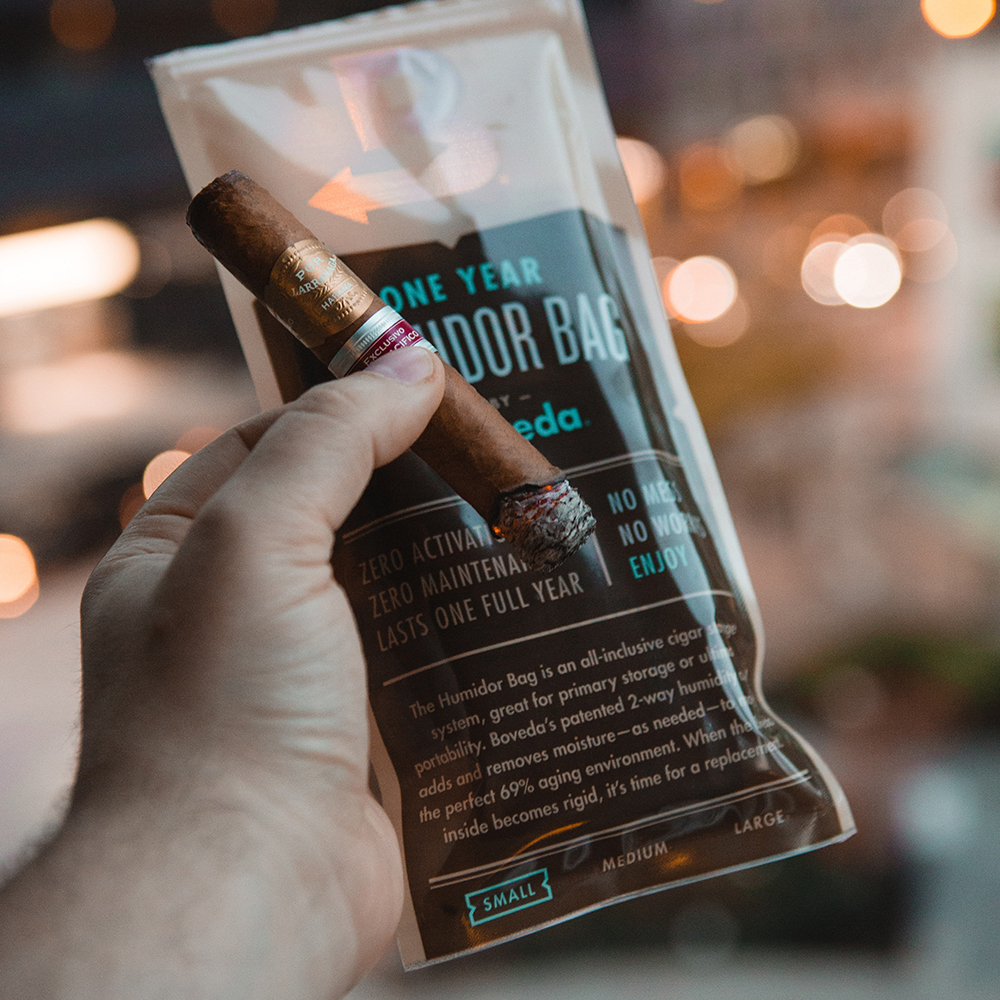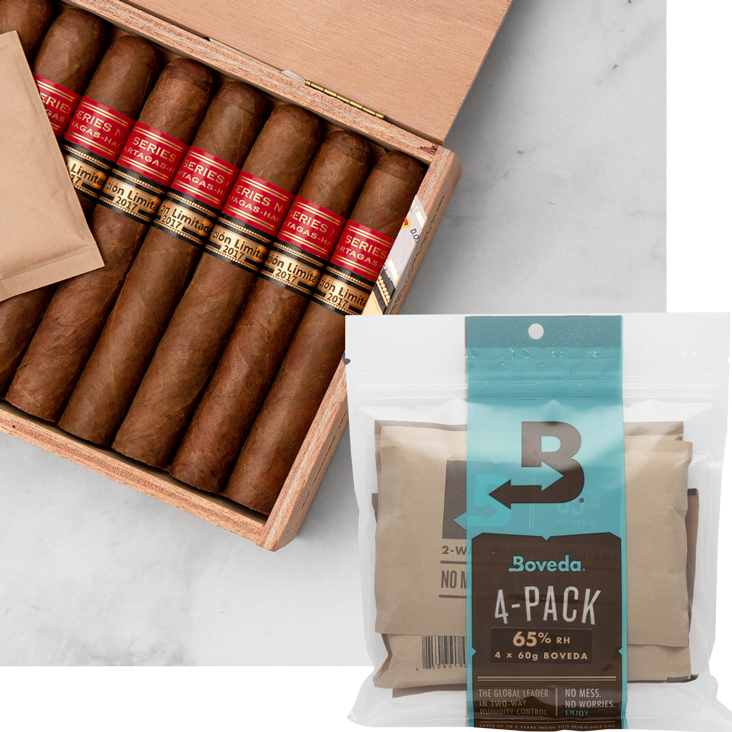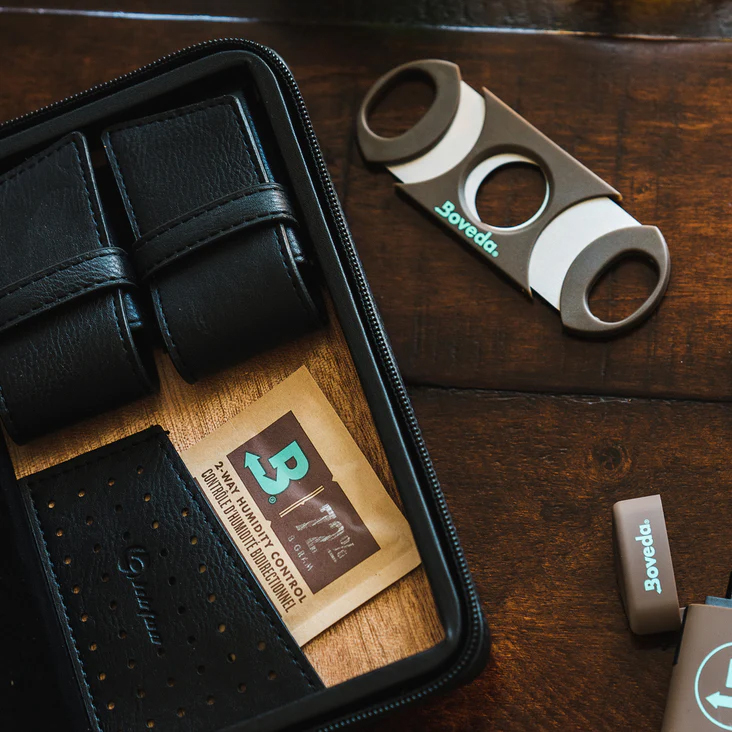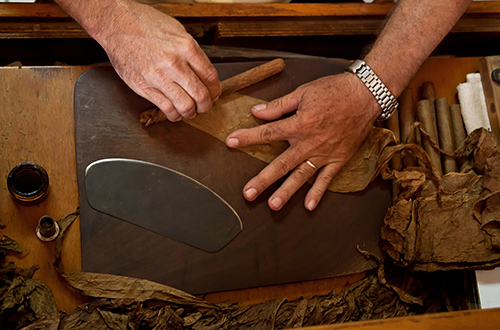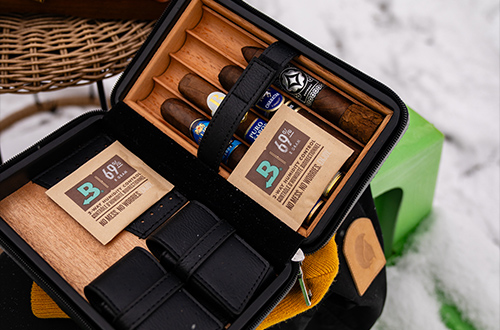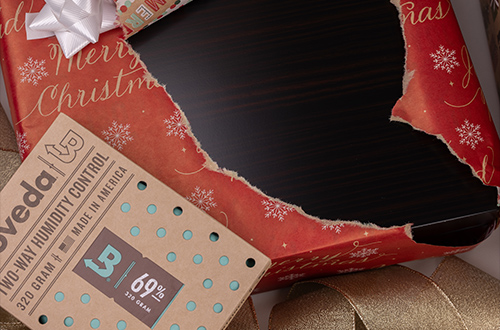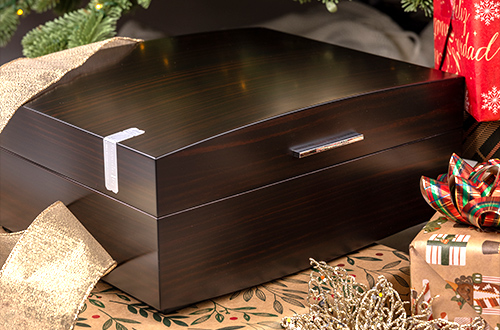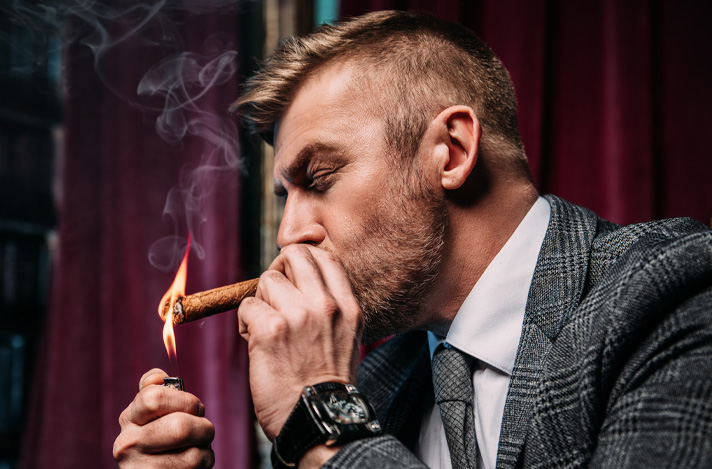
What’s a Habano?
While visiting Cuba, you’ll see the word “Habano” everywhere. Habano is Spanish for “from Havana.” In Cuba, it means any cigar manufactured in country made exclusively from Cuban tobacco. Fun cigar fact: Cuban Habanos are also known as Puro cigars. A Puro is a cigar rolled from tobacco grown in a single country.
Watch> Can You Spot the Fake Cubans?
Fake Cubans versus real Cubans, how’s a smoker to know? Learn how to tell if the cigars someone’s trying to sell you are real Cubans. See real examples on how to spot a counterfeit Cuban cigar from Alex Cigar Dandy.
Cigar podcast host, Benjamin Patock, Boveda’s International Relations Executive, said, “If you don’t buy a Cuban cigar from an official retailer, it’s probably fake—especially if it seems to be a ‘good deal’.”
Now, if you inadvertently bought a Cuban imposter it doesn’t mean that it’s a bad cigar. You probably just overpaid, Benjamin said. “A cigar on a farm costs the equivalent of 10 cents to the locals. If you paid $10 USD, you were ripped off.”
Where Can I Buy Cuban Cigars?
When you travel outside the U.S., you can legally buy and smoke Cuban cigars while you’re in country. What you’re not allowed to do is bring Cuban cigars back into the U.S. from Cuba—or any other country.
Why can’t you bring Cuban cigars into the U.S.? Short Cuban cigar history lesson: In 1962, the U.S. instituted a trade embargo against Cuba, which makes it illegal to import or sell Cuban cigars in the U.S. While you can’t currently import Cuban tobacco products—even for personal consumption—check the official decree for an update if you’re traveling abroad.
Not a globetrotter but intrigued by the hype over Cuban cigars? Keep reading to learn more about the myths of Cuban cigars.
If you don’t buy a Cuban cigar from an official retailer, it’s probably fake—especially if it seems to be a “good deal”.
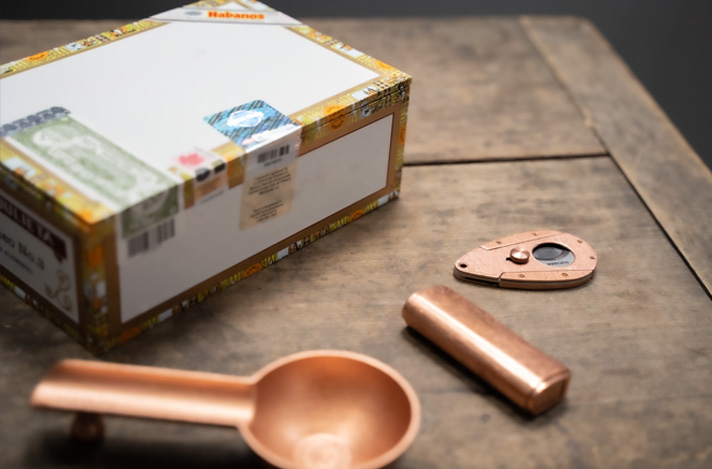
Myth #1: Cuban Cigars are Better Cigars
For ages, Cuban cigars were the preferred smoke for Europeans and visiting American aficionados. (Cuba is permitted to trade with many other countries, including those in the European Union.)
“Europeans have access to Cuban cigars,” Benjamin said. “All of the big cigars originally came from Cuba. The history is just there. To a European, a Cuban cigar is the epitome of luxury. And Cuban tobacco is fantastic, especially in a well-aged Cuban cigar,” Benjamin said.
Ask anyone in Europe what the best cigar is and they would say Cohibas, even though they may have never seen one. Or never smoked one.”
And now they may never will. After the sale of the corporation that markets and sells Cuban cigars around the world, the price of Cuban cigars has increased significantly. Big ring gauges that formally fetched 15–20 Euro (18–25 USD) will now set you back 30-100 Euros (30–105 USD).
As a result of the price increases, supply difficulties, and quality issues, Europeans increasingly are turning to New World (AKA non-Cuban) cigars. Traditionally, U.S. cigar smokers have more readily embraced new lines, new releases, and boutique brands.
“We have people who are curious about new cigars,” Benjamin said. “It’s just different. European cigar smokers are more conservative smokers. People were brought up with Cuban cigars.
It doesn’t mean it’s a bad cigar if that Cuban you bought turns out to be fake. You probably just paid too much.
Watch> Why Are Cuban Cigars So Expensive?
Joya de Nicaragua Executive President Juan Martínez talks about competing with Cuban cigars with Boveda’s Drew Emmer.
Myth #2: Aging Cigars is Just a “Cuban” Thing
With New World cigars, additional aging is a personal preference, not a necessity. Cigars hailing from the Dominican Republic, Honduras, and Nicaragua are made from aged tobacco. To remove its ammonia compounds, all tobacco needs to age. Usually that takes from 1 to 3 years. Sometimes cigar makers age tobacco for 10+ years before using it for cigars, Benjamin said.
If you’re a cigar enthusiast willing to hold off, aging can make a great cigar even better. Not every cigar has what it takes, however, to age well. Time won’t make a cigar rolled with inferior or under-cured tobacco better. Likewise, rich, deep flavors won’t magically blossom from mild cigars. Rule of thumb: the more Ligero, the higher the aging potential; and more of an opportunity to enhance a cigar’s character over time.
You’ll get the most bang for your patience if you age thicker cigars. Why? The larger the ring gauge, the greater the variety of tobacco leaves. So aging will release some wonderfully complex flavors within the blend.
With Cubans, the responsibility of aging falls on the shoulders of the cigar collector. Standard Cuban cigars are normally boxed within 12 months after harvest, so their tobacco hasn’t fully aged. Nor are they aged inside their boxes at the cigar factory. So off the shelf, improving Cubans is your job.
After you buy Cuban cigars aging them is essential to mature their flavor.
How do you properly age Cuban cigars?
For the finest result, age cigars between 62 and 65% RH (relative humidity). At this humidity, the oils in the tobacco can concentrate, which produces a richer, more nuanced flavor profile..
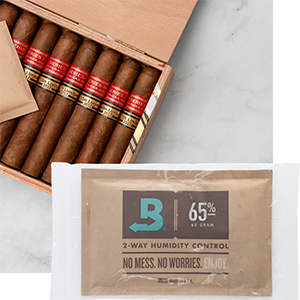
Boveda makes packets for aging cigars in both 62% RH and 65% RH. Which you choose is personal preference.
Just don’t mix different RH levels within the same humidor. You can set up a separate tupperdor or humidor bag exclusively for aging. Keep the Cuban cigars in their original box and slip it into your storage container with the right number of Boveda packets.
How long should you age Habanos before smoking them? Many cigar enthusiasts will age new Habanos for three to four years. Cigar collectors age Cubans anywhere from five to 20 years. For more guidance about cigar aging, check out this post from Cigar Sense.
Myth #3: Cuban Cigars are Stronger than Other Cigars
Tobacco is cured to eliminate the byproducts that come from the fermentation. Fresh out of the drying barn there is a lot of ammonia. “If you go to a cigar factory and into the curing and aging rooms, the aroma is really overwhelming,” Benjamin said.
Those strong smells and flavors aren’t given the time to mellow out in a Habano. As a result, freshly rolled Cuban cigars are intense and spicy. And tobacco that comes out of Cuba tends to be a bit stronger with more nicotine. “When you retrohale, the punch through your nose is the nicotine kicking in,” Benjamin explained.
“But there are perfect examples for very strong cigars out of the Dominican Republic or Nicaragua as well. Just three words: Ligero, Ligero, Ligero!”
Nowadays, it’s not unusual to find high priming wrappers on cigars from those regions as well. A higher priming wrapper hails from a higher part of the tobacco plant and yields a fuller body and richer flavor.
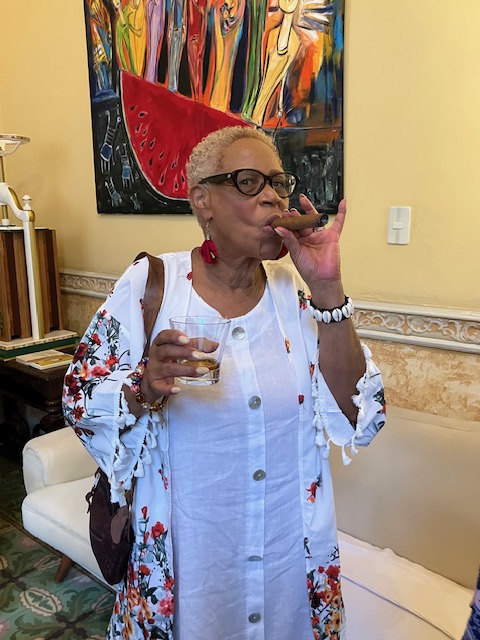
Myth #4: Darker Wrappers = Stronger Cigars, Lighter Wrappers = Lighter Cigars
Light wrapper versus dark wrapper—doesn’t matter. The strength doesn’t come from the wrapper, it’s all about the filler. The color on the outside doesn’t depict what’s going to happen with the strength of the flavor profile of the cigar when you smoke it.
Everything you do with a cigar—how you store it, the way you cut it, the way you light it, how often you puff it and how quickly you smoke it—affects that cigar’s taste. (What you eat before you smoke a cigar and what you drink while you smoke a cigar also influences your experience.)
Developing your cigar palate is an exciting journey. And just like planning a trip, shopping for cigars involves prep work. Learn how to find a good store, what questions to ask a tobacconist, and when to shop (and not shop) for cigars.
Like to Learn More About Cuban Cigars?
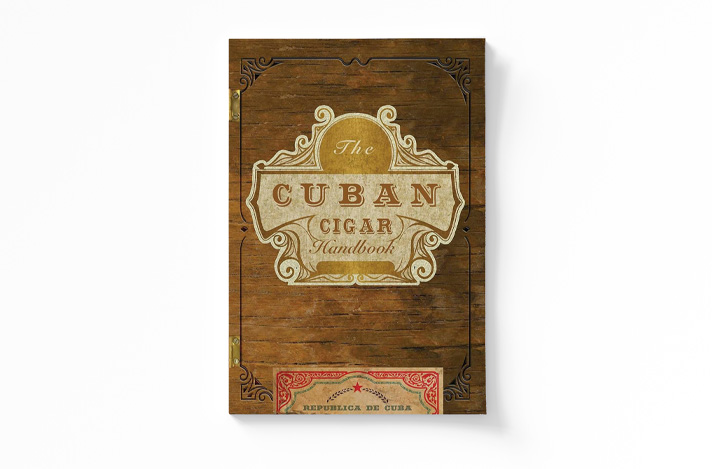
– Matteo Speranza
Snap up this collector’s item if you find it at a used bookstore, tag sale, or estate sale:An Illustrated Encyclopaedia of Post Revolution Havana Cigars, – Min Ron
